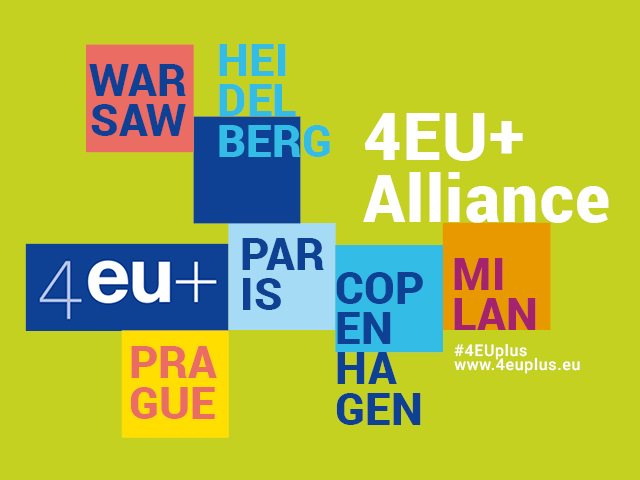Mobility within 4EU+: 6 universities, 3 challenges
In February, Erasmus coordinators and administrative staff from the 4EU+ universities met at the University of Heidelberg to discuss how to promote mobility for students and staff between their institutions.
Different universities – same challenges
The 4EU+ alliance is an ambitious and complex project hosted at six different universities in six different countries. The 4EU+ meeting in Heidelberg was an opportunity for the six universities to come together and create unique solutions to challenges such as language barriers, social and economic differences as well as national laws conflicting with the project’s trans-European foundation.
The meeting in Heidelberg showed that the challenges are well known, but also easier to overcome when working together and continually addressing the challenges.

Both academic and administrative staff within 4EU+ have tackled such challenges before, and each university is stronger on some challenges than others. However, together the alliance becomes a smooth university superpower that works to provide the best opportunities and platforms to secure mobility for 4EU+ students.
Housing - a prioritised challenge
A well-known mobility challenge for many universities located in major cities in Europe is the ability to offer students and staff affordable housing. Paris, Milan and Copenhagen, for example, are ranked as some of the most expensive cities to live and study in, whereas cities like Warsaw and Prague are comparatively less expensive. However, all cities are high on the list of the best European cities to study and live in.
The challenge is that the cost of living and studying creates an imbalance among the student population when it comes to mobility options. Therefore, the task is to ensure that students and staff from the six universities have equal opportunities to study and teach at each other’s universities. To create these opportunities, Heidelberg University, for example, is looking at the possibility of building a new dormitory for 4EU+ students. At Sorbonne University, they are considering paying a share of students’ housing costs to offset the high cost of living in Paris.
Speaking the 4EU+ languages
When it comes to language skills, the 4EU+ alliance is as diverse as the Europe itself. Multiply languages are spoken at the six universities and courses at the universities are also offered in their respective national languages. This means that inbound students may participate in courses taught both in the national language and in English, if the national language is spoken by the student.

The solution to this challenge is to create a balance between language courses prior to the semester and the offering of courses taught in English.
Pilot 4EU+ courses
It was decided at the meeting in Heidelberg that each university will explore the possibilities of a collaboration between the social science faculties as a pilot. The reason why the universities agreed on the social science facilties is because the academic content in social science concern international subjects such as politics, economics etc. and are common across all universities.
Having a fixed number of courses taught in English will hopefully also contribute to reduce students’ uncertainty about whether the courses they plan to take are offered that semester.
Even though the challenges of mobility are complex, it is clear that every 4EU+ university is not only willing but also able to co-create innovative solutions with the other universities to overcome these challenges to the benefit of 4EU+ students.
By Kristian Petersen & Aske Stick
About 4EU+

4EU+ was founded in March 2017 and initially consisted of Charles University (Czech Republic), Heidelberg University (Germany), Sorbonne University (France) and University of Warsaw (Poland). The University of Copenhagen (Denmark) and University of Milan (Italy) were invited to join and admitted in the autumn of 2018.

